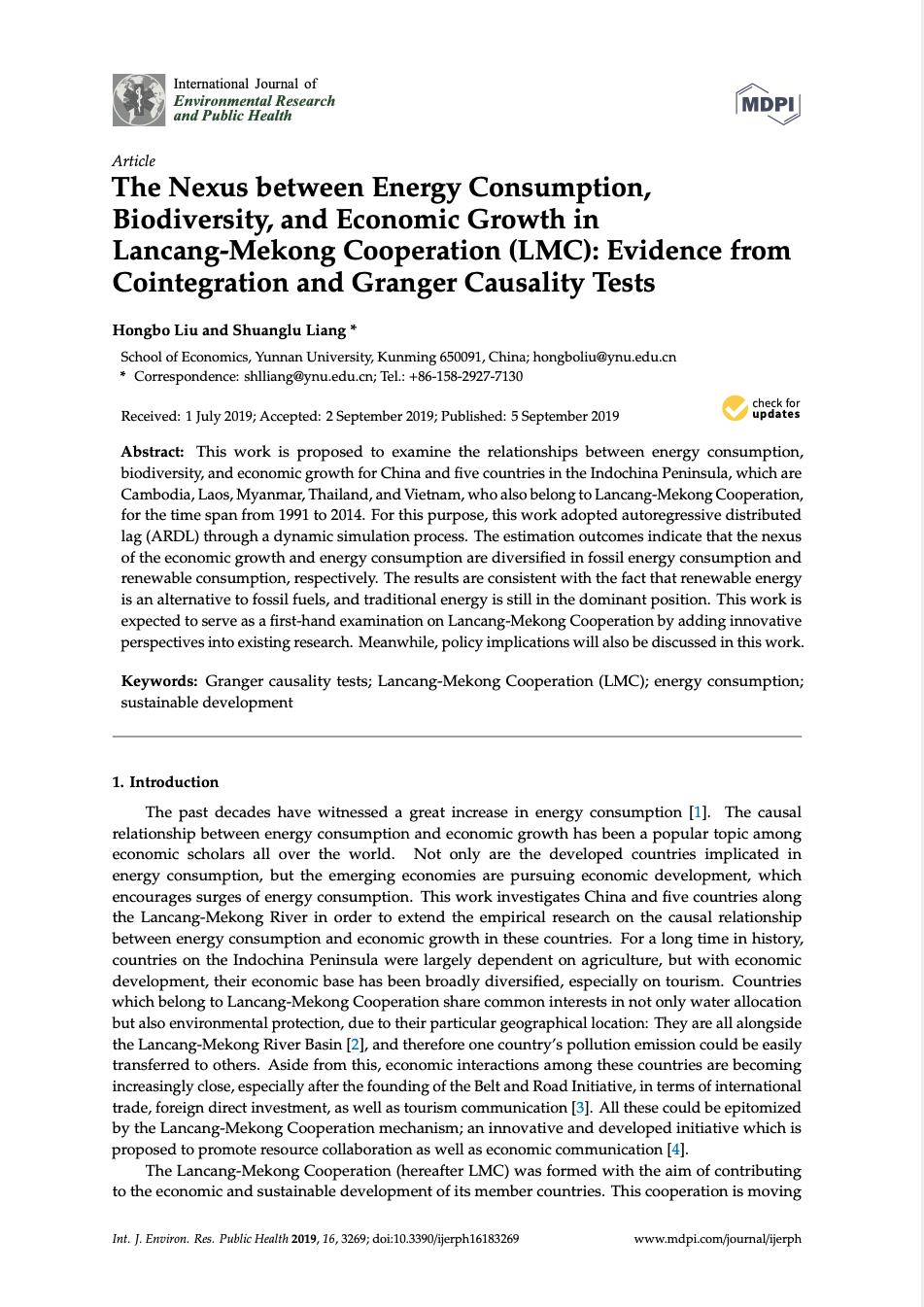
Keyword(s)
Author(s)
Hongbo Liu, Shuanglu Liang
Publisher
Published Date
Access
DOI
School of Economics, Yunnan University, Kunming 650091, China
This work is proposed to examine the relationships between energy consumption, biodiversity, and economic growth for China and five countries in the Indochina Peninsula, which are Cambodia, Laos, Myanmar, Thailand, and Vietnam, who also belong to Lancang-Mekong Cooperation, for the time span from 1991 to 2014. For this purpose, this work adopted autoregressive distributed lag (ARDL) through a dynamic simulation process. The estimation outcomes indicate that the nexus of the economic growth and energy consumption are diversified in fossil energy consumption and renewable consumption, respectively. The results are consistent with the fact that renewable energy is an alternative to fossil fuels, and traditional energy is still in the dominant position. This work is expected to serve as a first-hand examination on Lancang-Mekong Cooperation by adding innovative perspectives into existing research. Meanwhile, policy implications will also be discussed in this work.
Cite: Liu, H., Liang, S., 2019. The Nexus between Energy Consumption, Biodiversity, and Economic Growth in Lancang-Mekong Cooperation (LMC): Evidence from Cointegration and Granger Causality Tests. Environmental Research and Public Health.